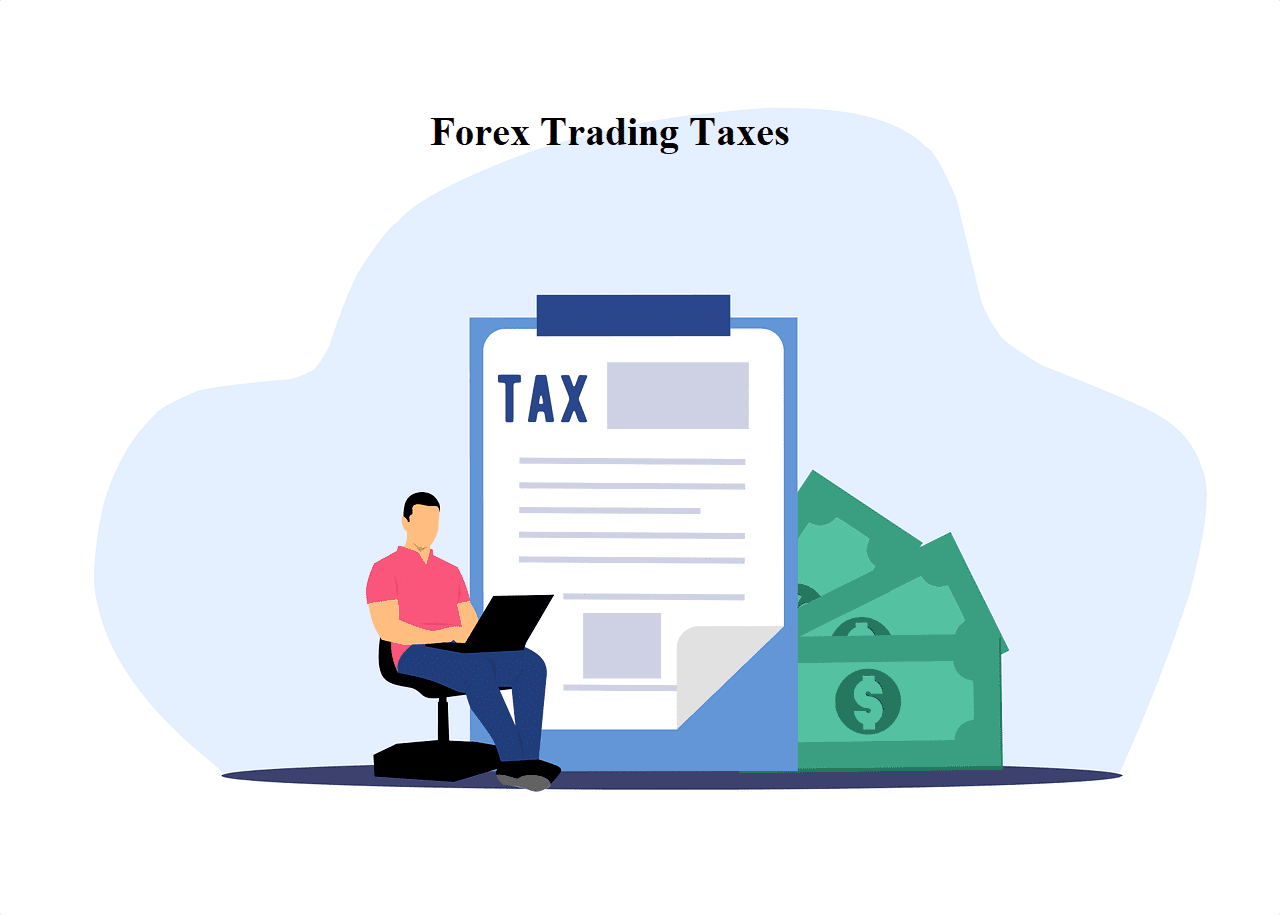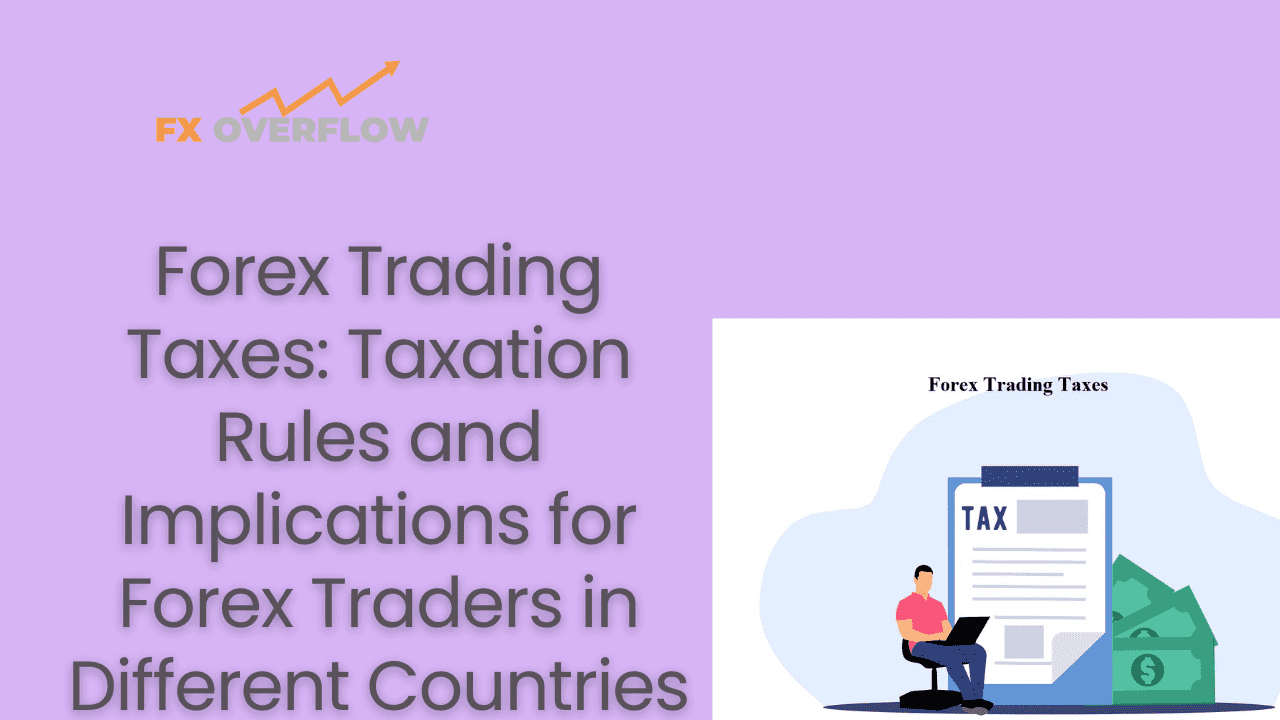Forex Trading Taxes: Taxation Rules and Implications for Forex Traders in Different Countries
In the world of forex trading, tax implications can be complex and varied. As a forex trader, it's crucial to understand how taxes affect your trading activities in different countries. This article aims to provide a comprehensive overview of forex trading taxes, covering taxation rules and their implications for forex traders worldwide.

Table content
1. Understanding Forex Trading Taxes
2. Taxation Rules in Different Countries
2.1. United States
2.2. United Kingdom
2.3. Australia
2.4. Canada
3. The Implications of Forex Taxes
3.1. Impact on Trading Strategies
3.2. Repatriation of Funds
3.3. Compliance and Record-Keeping
4. Footnote
5. FAQs
1. Understanding Forex Trading Taxes
1.1. What Are Forex Taxes?
Forex taxes refer to the taxes levied on profits and gains earned from foreign exchange trading activities. These taxes can include income tax, capital gains tax, or any other applicable taxes as per the tax laws of the country in which the trader resides or operates.
2. Taxation Rules in Different Countries
Each country has its own set of rules and regulations regarding forex trading taxes. It's important for traders to be aware of these rules to ensure compliance and avoid any legal issues. Let's take a look at how some key countries handle forex trading taxes:
2.1. United States
In the United States, forex trading is taxed as regular income, capital gains, or a combination of both, depending on the individual's trading activity. Traders need to report their forex gains and losses on Schedule D of their tax return.
2. 2. United Kingdom
In the UK, forex trading is generally considered gambling for tax purposes. Therefore, profits made from forex trading are not subject to income tax, capital gains tax, or stamp duty.
2.3. Australia
Australian forex traders fall under the capital gains tax jurisdiction. Traders are required to keep detailed records of their trades and report any gains or losses as part of their annual tax return.
2.4. Canada
In Canada, forex trading is treated as business income or as capital gains, depending on the trader's primary intention behind trading. Traders are required to report their forex income and expenses on their tax return.
3. The Implications of Forex Taxes
3.1. Impact on Trading Strategies
Forex taxes can significantly impact a trader's overall profitability. High tax rates may force traders to reevaluate their trading strategies and risk management techniques to optimize after-tax returns.
3.2. Repatriation of Funds
In some countries, repatriating funds from forex trading accounts may attract additional taxes. Traders need to consider these implications when deciding on withdrawal strategies.
3.3. Compliance and Record-Keeping
To ensure smooth tax filings, traders must maintain accurate and up-to-date records of their forex trading activities. This includes transaction details, profit and loss statements, and any other relevant documents.
4. Footnote
In Summary, Forex trading taxes are a critical aspect of a trader's financial journey. Understanding the taxation rules and implications in different countries is essential for compliance and optimizing tax liabilities. As a forex trader, staying informed and seeking professional advice can help navigate the complexities of taxation efficiently.
5. FAQs (Frequently asked Questions)
Q1. Are forex trading taxes the same worldwide?
A: No, forex trading taxes vary from country to country. Each country has its own tax laws and regulations governing forex trading activities.
Q2. Can forex losses be deducted from taxable income?
A: In some countries, forex losses can be deducted from taxable income, reducing the overall tax liability.
Q3. Is forex trading tax-free in all countries?
A: No, forex trading is not tax-free in all countries. Taxation rules differ based on the country's tax laws and classification of forex trading.
Q4. What happens if I fail to report my forex trading income?
A: Failure to report forex trading income can lead to penalties, fines, or even legal consequences, depending on the tax laws of your country.
Q5. Can I get tax advice for my forex trading activities?
A: Yes, it's advisable to seek professional tax advice to ensure compliance and optimize tax implications for your specific forex trading activities.











Discussion